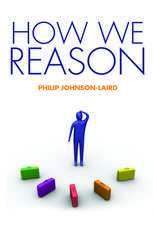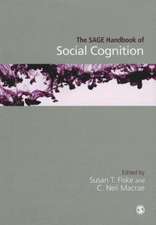Forensic Neuropsychological Evaluation of the Violent Offender: SpringerBriefs in Psychology
Autor Charles J. Golden, Lisa Lashleyen Limba Engleză Paperback – 26 mar 2014
Din seria SpringerBriefs in Psychology
-
 Preț: 345.89 lei
Preț: 345.89 lei - 17%
 Preț: 359.87 lei
Preț: 359.87 lei -
 Preț: 346.86 lei
Preț: 346.86 lei - 5%
 Preț: 375.87 lei
Preț: 375.87 lei -
 Preț: 479.67 lei
Preț: 479.67 lei - 5%
 Preț: 413.05 lei
Preț: 413.05 lei -
 Preț: 380.84 lei
Preț: 380.84 lei -
 Preț: 377.35 lei
Preț: 377.35 lei -
 Preț: 408.66 lei
Preț: 408.66 lei -
 Preț: 477.56 lei
Preț: 477.56 lei -
 Preț: 344.36 lei
Preț: 344.36 lei - 5%
 Preț: 421.92 lei
Preț: 421.92 lei -
 Preț: 479.47 lei
Preț: 479.47 lei -
 Preț: 441.85 lei
Preț: 441.85 lei -
 Preț: 478.53 lei
Preț: 478.53 lei -
 Preț: 443.97 lei
Preț: 443.97 lei -
 Preț: 376.43 lei
Preț: 376.43 lei - 5%
 Preț: 356.32 lei
Preț: 356.32 lei -
 Preț: 443.75 lei
Preț: 443.75 lei -
 Preț: 411.75 lei
Preț: 411.75 lei - 15%
 Preț: 462.51 lei
Preț: 462.51 lei -
 Preț: 412.89 lei
Preț: 412.89 lei -
 Preț: 374.46 lei
Preț: 374.46 lei -
 Preț: 377.18 lei
Preț: 377.18 lei -
 Preț: 479.08 lei
Preț: 479.08 lei -
 Preț: 343.88 lei
Preț: 343.88 lei -
 Preț: 474.45 lei
Preț: 474.45 lei -
 Preț: 376.22 lei
Preț: 376.22 lei - 15%
 Preț: 461.54 lei
Preț: 461.54 lei -
 Preț: 378.34 lei
Preț: 378.34 lei - 5%
 Preț: 357.23 lei
Preț: 357.23 lei -
 Preț: 342.74 lei
Preț: 342.74 lei -
 Preț: 376.80 lei
Preț: 376.80 lei -
 Preț: 376.04 lei
Preț: 376.04 lei -
 Preț: 376.22 lei
Preț: 376.22 lei -
 Preț: 344.25 lei
Preț: 344.25 lei -
 Preț: 442.44 lei
Preț: 442.44 lei -
 Preț: 375.23 lei
Preț: 375.23 lei -
 Preț: 374.85 lei
Preț: 374.85 lei -
 Preț: 347.31 lei
Preț: 347.31 lei -
 Preț: 409.80 lei
Preț: 409.80 lei -
 Preț: 414.42 lei
Preț: 414.42 lei -
 Preț: 344.10 lei
Preț: 344.10 lei -
 Preț: 446.65 lei
Preț: 446.65 lei -
 Preț: 476.79 lei
Preț: 476.79 lei -
 Preț: 379.68 lei
Preț: 379.68 lei -
 Preț: 380.07 lei
Preț: 380.07 lei -
 Preț: 408.44 lei
Preț: 408.44 lei -
 Preț: 376.43 lei
Preț: 376.43 lei
Preț: 374.85 lei
Nou
Puncte Express: 562
Preț estimativ în valută:
71.73€ • 75.08$ • 59.70£
71.73€ • 75.08$ • 59.70£
Carte tipărită la comandă
Livrare economică 31 martie-14 aprilie
Preluare comenzi: 021 569.72.76
Specificații
ISBN-13: 9783319047911
ISBN-10: 3319047914
Pagini: 50
Ilustrații: V, 57 p.
Dimensiuni: 155 x 235 x 15 mm
Greutate: 0.1 kg
Ediția:2014
Editura: Springer International Publishing
Colecția Springer
Seriile SpringerBriefs in Psychology, SpringerBriefs in Behavioral Criminology
Locul publicării:Cham, Switzerland
ISBN-10: 3319047914
Pagini: 50
Ilustrații: V, 57 p.
Dimensiuni: 155 x 235 x 15 mm
Greutate: 0.1 kg
Ediția:2014
Editura: Springer International Publishing
Colecția Springer
Seriile SpringerBriefs in Psychology, SpringerBriefs in Behavioral Criminology
Locul publicării:Cham, Switzerland
Public țintă
ResearchCuprins
Introduction.- Neuropsychological Forensic Evaluations.- Designing a Neuropsychological Test Battery.
Textul de pe ultima copertă
The diagnosis of deficits in brain function can have a critical impact on a defendant's verdict and sentencing. But to measure illness or impairment properly--especially when dangerous offenders face lengthy sentences or the death penalty--professionals need to choose tests that satisfy legal as well as clinical concerns.
Forensic Neuropsychological Evaluation of the Violent Offender sorts out the complex issues involved in designing a relevant test battery and conducting an effective evaluation. Geared toward the non-specialist reader, this brief resource synthesizes the database on offender populations and individual case studies to fine-tune approaches to testing in core areas including brain injury, personality, intelligence, cognitive functioning, sensory and motor skills, and attention. Real-world context illustrates how evaluation data may be used in case building--and gamesmanship--by the prosecution or the defense. The resulting volume offers solid guidance on raising standards for how evaluations are done, and for their judicious use by the justice system. Among the issues covered:
Forensic Neuropsychological Evaluation of the Violent Offender sorts out the complex issues involved in designing a relevant test battery and conducting an effective evaluation. Geared toward the non-specialist reader, this brief resource synthesizes the database on offender populations and individual case studies to fine-tune approaches to testing in core areas including brain injury, personality, intelligence, cognitive functioning, sensory and motor skills, and attention. Real-world context illustrates how evaluation data may be used in case building--and gamesmanship--by the prosecution or the defense. The resulting volume offers solid guidance on raising standards for how evaluations are done, and for their judicious use by the justice system. Among the issues covered:
- The role of client history in forensic neuropsychological testing.
- The impact of different brain injuries on aggression and offending.
- Strengths and limitations of brain imaging.
- Evaluating executive function: beyond scoring.
- Testing for exaggeration and malingering.
- Qualifying for neuropsychological work in forensic settings.
Caracteristici
Explains the importance of flexible rather than fixed batteries Describes pitfalls in achieving an appropriate evaluation shows how to provide examinations that allow for the needs, history and setting of the referred individual Provide an overview of the brain-behavior relationship framework Includes supplementary material: sn.pub/extras














